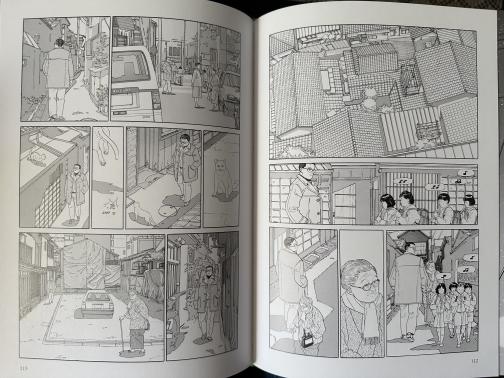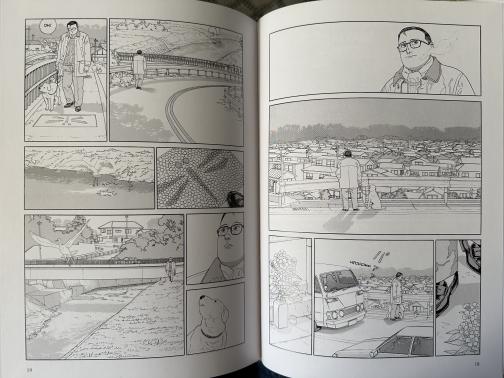Finished reading You Deserve a Tech Union by Ethan Marcotte. I’ve needed to pace myself with this, because I keep getting mad about my job and the industry as a whole. Even though the point of the book is to inspire and mobilize unionizing, I’ve ended up disheartened. (This will pass.)
Blurt! — Sben
books
Finished reading Cahokia Jazz by Francis Spufford, a noir set in the city of Cahokia in an alternate 1922. The story ends up being a bit like one of Le Guin’s (explicitly so), ending up asking whether a utopia is worth the price; in the meantime, it explores cultural identity, racism, and economics, with all the elements of noir (a corrupt establishment, dirty police, a femme fatale, etc.). I loved this, another candidate for book of the year.
Finished reading The Mountain in the Sea by Ray Nayler. This was a wild ride — I couldn’t put it down — about labor and sentience and connection. Very briefly: a woman and the only possibly-sentient android explore the possibility of an octopus civilization, while a man is enslaved on a fishing trawler run by an AI and a savant tries to hack into a more sophisticated AI. This will be sticking with me for a while, a candidate for book of the year.
Rhymes with Adrian Tchaikovsky’s Children of Ruin and, unexpectedly, Pink Floyd’s “Echoes” which I’ve already been listening to quite a bit lately.
Finished reading Witch King by Martha Wells, whose protagonist is the demon a bunch of fools tried to bind in the first chapter. Turns out he’s mostly a nice guy, or at least trying, as he tries to (in one arc of the story) overthrow an evil empire and (in the other) prevent a new empire from taking its place. Quite good.
The neighborhood bookstore was crowded on its opening day!
Finished reading Legends & Lattes by Travis Baldree, a short fantasy novel about an orc who retires from the adventuring life to open a coffee shop in a city where nobody has ever heard of coffee. This was completely ridiculous and cozy and charming, and the kids would probably describe it as “so gay (affectionate)”.
Finished reading Emily Wilde’s Map of the Otherlands by Heather Fawcett, followup to Emily Wilde’s Encyclopaedia of Faeries. I guess I didn’t mention that the first book was a romance novel in addition to all the other stuff it had going on. This book continues right along the same path, and was equally charming.
Finished reading The Eighth Detective by Alex Pavesi. Several short murder mysteries linked by an explicit exploration of the form, the overarching story doesn’t play fair but nevertheless is clever and ends on a satisfying note.
I’m now in the rare-for-me situation of reading two books at once: The first gets me so mad that I can’t read it at bedtime, so I had to start a second.
Finished reading Kafka on the Shore (海辺のカフカ) by Haruki Murakami. I’m not quite certain what I’ve read, and it’ll take me a bit to digest. There were parts I really loved and parts which let’s say I found problematic; I don’t know if the problematic parts are a Murakami theme or unique to this book.

|

|
||||||
Finished reading “The Walking Man” by Jiro Taniguchi (歩くひと by 谷口 ジロー). This manga is mostly vignettes of a man walking in a small city, maybe eight to ten pages each, often with a final page as he gets home. It’s very peaceful, essentially no story, just a mellow vibe as he encounters interesting people or things and returns to his life.
Finished reading Menewood by Nicola Griffith, which picks up where Hild left off. This was another great book, with through-lines of trauma, grief, and becoming true to oneself, and perhaps a secondary theme of disability. Like Hild, I will reread this at some point; I hope she’s able to write the next one in less than ten years.
Finished reading These Burning Stars by Bethany Jacobs. I almost put the book down early, when it repeatedly poked at a stylistic peeve of mine, but Jacobs’s writing stepped up just in time, and I enjoyed the rest of the book to the end.
Super-excited to learn that a little bookstore is going to open nearby, in a month or so.